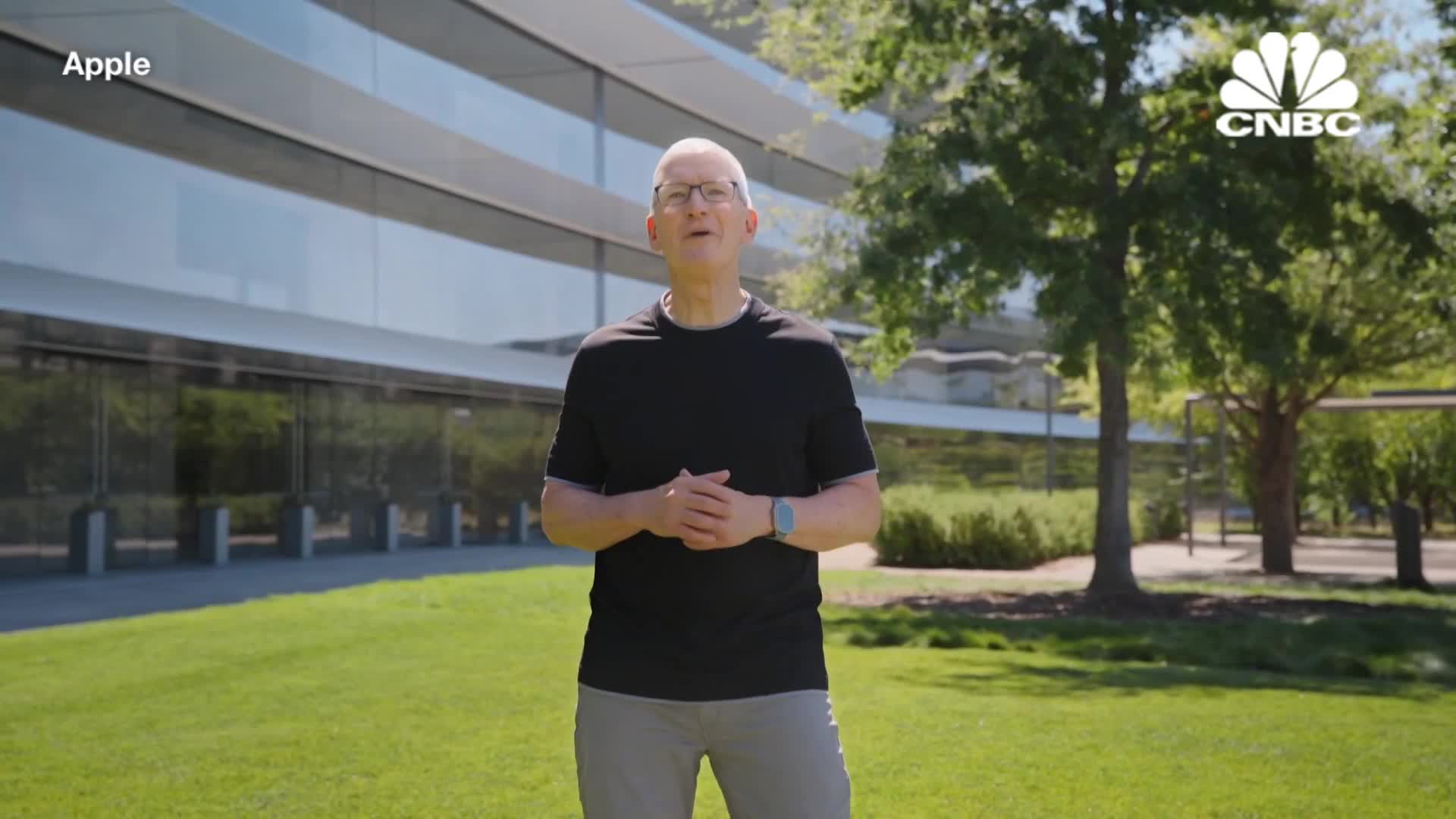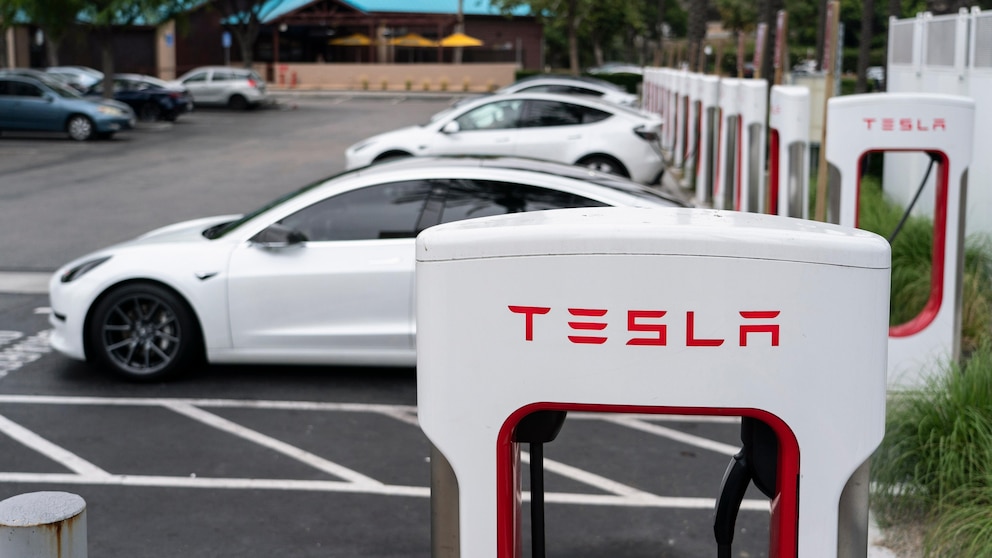An attendee wears a Meta Platforms Inc. Oculus Quest 2 virtual reality (VR) headset at the Telefonica SA stand on day two of the Mobile World Congress at the Fira de Barcelona venue in Barcelona, Spain, on Tuesday, Feb. 28, 2023.
Angel Garcia | Bloomberg | Getty Images
Meta is spending billions of dollars a quarter to fulfill CEO Mark Zuckerberg’s dream of a futuristic virtual world that he calls the metaverse.
Despite the company’s commitment to making its founder’s dream come true, the virtual reality market is contracting.
Sales of VR headsets and augmented reality glasses in the U.S. plummeted nearly 40% to $664 million in 2023, as of Nov. 25, according to data shared with CNBC by research firm Circana. That’s a much steeper drop than last year, when sales of AR and VR devices slid 2% to $1.1 billion.
The two-year decline underscores Meta’s continuing challenge in bringing the immersive technology out of a niche gaming corner and into the mainstream. While Zuckerberg said, in announcing Facebook’s pivot to Meta in late 2021, that it would likely take a decade to reach a billion users, he may need to start showing more optimistic data to appease a shareholder base that’s been critical of the company’s hefty and risky investments.
Thus far, there hasn’t been a breakout success — or killer app — to validate Zuckerberg’s vision. Meta’s Reality Labs unit, which is developing VR and AR technologies, lost $3.7 billion in the third quarter on sales of $210 million. In total, the division has lost about $25 billion since the beginning of 2022, shortly after Zuckerberg renamed his company.
Meta declined to provide a comment for this story but pointed to a blog post on Monday from Chief Technology Officer Andrew Bosworth, who runs Reality Labs. Bosworth called artificial intelligence and the metaverse Meta’s “two long-term bets on technologies of the future,” and said they’re beginning to “intersect in the form of products accessible to huge numbers of people.”
“Making long-term bets on emerging technologies isn’t easy,” Bosworth wrote. “It’s not guaranteed to work, and it’s certainly not cheap. It’s also one of the most valuable things a technology company can do — and the only way to remain relevant over the long run.”
Meta is currently the leader in the VR market, with sales of its Quest-branded headsets representing the bulk of the U.S. market by a large margin, said Ben Arnold, Circana’s consumer technology analyst. Sony released its second-generation PlayStation VR2 headset earlier this year but hasn’t picked up much market share due in part to the device’s reliance on the PlayStation 5 video game console, Arnold said.
Sony didn’t respond to a request for comment.
Arnold attributed the market’s rough year to a dearth of new stand-alone VR headsets that could excite users and a continued lack of a breakout app that has wide appeal among mainstream consumers.
Meta debuted the Quest 3 VR in October, starting at $499, or $200 more than where the predecessor Quest 2’s base model was initially priced in 2020. Sales have at least been strong enough to help lift the VR market during the pivotal holiday period, even if the year overall has been week.
Andrew Bosworth, Chief Technology Officer of Facebook, speaks during Meta Connect event at Meta headquarters in Menlo Park, California on September 27, 2023.
Josh Edelson | AFP | Getty Images
During an eight-week period spanning October and November, sales of VR headsets in the U.S. were $271 million, a 42% jump from the $191 million generated during the same period last year, Circana data showed.
Arnold said that the design and appeal of VR headsets has significantly improved over the years, and that “the products are progressing along a timeline that makes sense.”
“If there’s a challenge there, it’s how do you get great content for this hardware, how do pull some of those levers that enable a developer to put more resources into building a game or some kind of experience,” Arnold said. “That’s a little bit about the economics, and it’s about how many people are gravitating towards this platform or this particular device, and if I’m a developer, is that worth my while.”
Meta is hoping the Quest 3 will inspire developers to create compelling apps and games that utilize the device’s so-called passthrough feature, which allows for augmented reality experiences that mix digital graphics with real-world experiences. Numerous developers who attended Meta’s Connect conference in September said the passthrough technology represented an upgrade from the Quest 2.
Bosworth wrote in his blog post that, “Within months of the Meta Quest 3 launch, seven of the top 20 apps are mixed reality apps.” He added that Meta is “seeing strong signals that people really value these experiences.”
Bosworth said Meta is testing generative AI technologies in its newest Ray-Ban smart glasses to help people translate foreign languages “or come up with a funny caption for a photo you’ve taken.”
“Ray-Ban Meta smart glasses will let AI see the world from our perspective for the first time,” he wrote.
The company’s second-generation Ray-Ban glasses were released in October with a starting price of $299. Meta is hoping the devices offer another path for Zuckerberg to realize his metaverse vision, which has thus far been tethered to Quest headsets.
Here comes Apple
Heading into 2024, the big wild card for the VR market is Apple.
In June, Apple unveiled its Vision Pro mixed-reality headset, which is slated to hit the market next year at a starting price of $3,499.
The premium price suggests Apple is targeting early adopters, developers and companies as potential customers, VR developers told CNBC at Meta’s Connect event. VR enthusiasts are excited about Apple’s first headset, considering the company’s smashing success with consumer devices, and Vision Pro’s potential to integrate with products like the iPhone and iPad.
Apple didn’t respond to a request for comment.
The Vision Pro’s debut could also play a pivotal role in bolstering the fledging VR and AR market in 2024, according to research from IDC. In a September news release about the state of the market, Ramon Llamas, IDC research director, said, “Apple’s entry next year will bring much needed attention to a small market, but it will also force other companies to compete in different ways.”
Andrew Boone, an analyst at JMP Securities, said he was initially so impressed by Apple’s Vision Pro demos that he began to worry about Meta’s future in the market.
His thought at first was, “Apple was so far ahead that maybe Meta would just throw in the towel,” Boone said.
“I think my tone on that has changed,” he said. “I think the price was too high to actually get mass demand, so Zuck is going after a different version of this. Clearly, the Quest is more game focused.”

Boone says there’s “enough differentiation” between the Quest and Vision Pro devices that they can cater to different crowds, though he expects to learn a lot more about the VR market over the next 12 months.
Rolf Illenberger, CEO of German VR startup VRdirect, said companies are excited about the Vision Pro “because it’s Apple,” but there’s a perception that it’s more of a “lifestyle” device. Apple’s demos highlighted more entertainment-friendly uses like the ability to watch movies on a giant virtual display. Apple describes the Vision Pro as a “spatial computer,” capable of blending the physical world with digital content and visuals.
“That product is premium, so it also got people thinking about what does an ultra-premium experience look like and what are the use cases that arise from that,” said Circana’s Arnold.
High hopes for the enterprise
Illenberger sees the potential for Meta’s Quest 3 to make a splash in the enterprise for tasks like workforce training, onboarding and marketing. He noted that the device is $500 cheaper than the Quest Pro, which was released in 2022 as more of a business-focused device, and has many of the same features.
The consumer is more challenging. Aside from “early adopters and hardcore gaming kids,” Illenberger says, “there’s not enough convincing arguments to spend even $500 on VR.”
In the corporate VR market, Meta and Taiwan’s HTC are the leading suppliers of devices. Pico-branded headsets from TikTok parent ByteDance “are losing more and more ground,” Illenberger said. ByteDance has reportedly canceled the next version of its Pico headset and is instead shifting resources to another device more similar to Apple’s Vision Pro.
ByteDance didn’t respond to a request for comment.
When it comes to selling to businesses, Illenberger says Meta is starting to benefit from its name change in late 2021. He said that Zuckerberg’s rebranding has had a “psychological” impact on some companies who feel more more comfortable purchasing the devices without the tarnish of Facebook’s brand and the numerous associated data privacy scandals
“Rebranding the company to Meta was a genius move,” Illenberger said. “Not because he’s claiming the market for his company, but people more and more forget that Meta is in fact Facebook.”

Don’t miss these stories from CNBC PRO:

